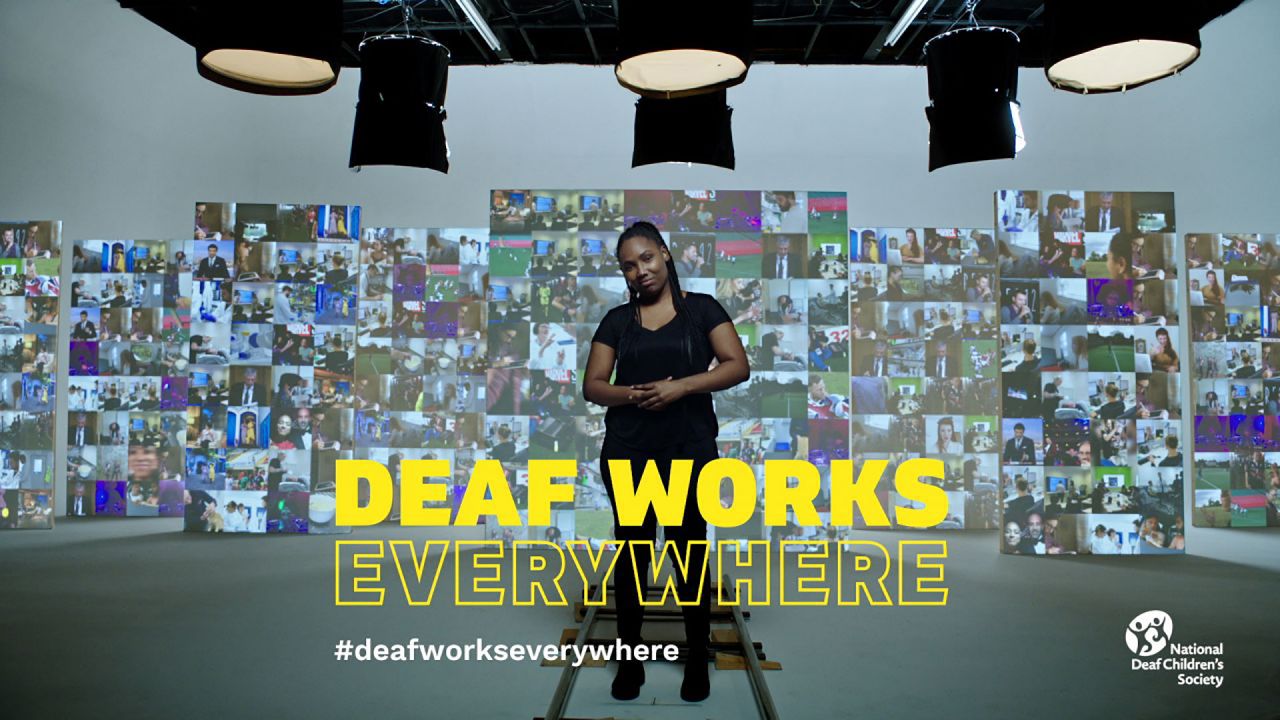This week is Deaf Awareness Week across the UK, focused on raising awareness, challenging perceptions, and promoting social inclusion for the deaf community, which accounts for up to 11 million people nationwide.
It seems a pertinent time to remind ourselves of one particular challenge deaf people are facing, and one that we at Red Bee became increasingly familiar with through our recent work with the National Deaf Children’s Society: that of visibility and representation.
So far, 2020 is shaping up to be an excellent year on this front. EastEnders’ 6 million weekly viewers have tuned in over the last few months to watch as Ben Mitchell comes to terms with living with deafness, and finds support in Frankie, played by deaf actor Rose Ayling-Ellis; Corrie’s audience has followed the emotions and challenges faced by new parents Gemma and Chesney in learning that their baby is deaf; and over in Hollywood, Marvel has announced their first ever deaf superhero, Makkari, who will be played by deaf actor Lauren Ridloff, showing hearing and deaf audiences alike that deafness knows no limits.
Mainstream and normalised deaf visibility like this is unprecedented, and brilliant to see. Understanding the importance of such representation is no revelation, but for young people in particular, its value cannot be underestimated. In working with the NDCS on their Careers Campaign, we sought to focus on representation at a more micro level, and for a more targeted audience – namely, the 45,000 deaf young people in the UK today who need to see a representation of themselves not just as deaf, but as professionals living out their skills, talents and interests.
Our research quickly revealed a clear correlation between under-representation in the workplace, and low and limited career aspirations. When I visited a specialist deaf school, I heard first-hand from the year 7 and 8 children that they viewed only a very limited pool of jobs as being open to them in the future. The students explicitly referred to certain jobs (doctors, sports coaches, firefighters) as “hearing jobs”, and said “Deaf can’t do that!”. Their surprise and disbelief at learning that there are deaf people already doing these jobs was genuine.
Google wasn’t helping anyone who might be seeking guidance: searching “deaf jobs” calls up an incredibly limited list of options. But when you flip it, searching for a job preceded by the word “deaf,” the outcome was completely different and always led to the story of a deaf person out there doing the job. A deaf dancer, doctor, comedian, teacher, explorer, NASA engineer, ambulance driver, actor, musician, hairdresser, fashion designer, artist, taxi driver, chef … we found all of these and more.
But the problem was greater than a Google algorithm. Deaf young people can’t see big, bright futures for themselves, because they just aren’t seeing deaf people doing a range of jobs. And so Deaf Works Everywhere was born: based on a sentiment that was true and empowering for a young generation of deaf people embarking on the beginning of their careers journey.
There is no substitute for authentic representation of deaf people in the workplace, doing the work they are employed to do, to impact the attitudes of deaf young people considering their future career options. We knew the most effective way to bridge the gap between our audience’s perceptions, and reality, was to live out the notion of “If I can see it, I can be it.” Quite simply, to show them the amazing array of careers that deaf people are doing today; representing them, but further, inspiring them. There is a whole deaf community out there who understand the narrow view these young people have for their futures and recognise their status as role models. Their generosity in sharing that power, through clips of themselves out in the real working world going about their jobs, created an authentic and effective means of smashing the misconception that any of these jobs are reserved for hearing people. By hiring deaf talent across the crew, from first AD to make-up artist, the result is a film that embodies Deaf Works Everywhere: made with and by deaf people.
The future feels exciting for deaf visibility, and, here at Red Bee, we’re looking forward to what comes next. Be it another major storyline in a hit TV show, or a future iteration of the NDCS Careers Campaign, we hope that deaf young people continue to find an ever-widening pool of people to represent them, inspire them and remind them that Deaf Works Everywhere.
Phoebe Hainsworth, Planner

